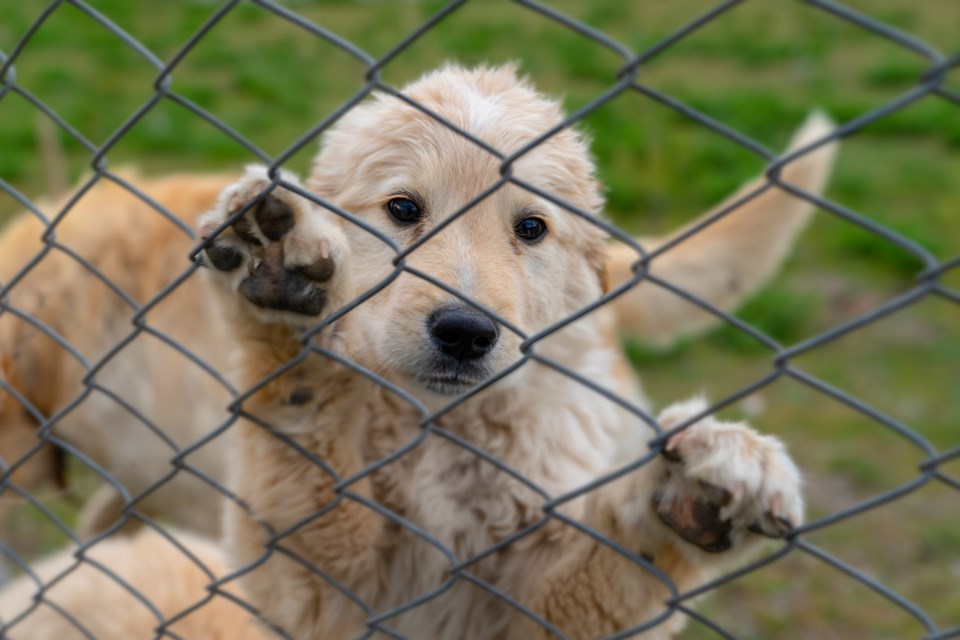A rash of sick kittens being sold in Surrey is renewing calls from the province’s chief animal welfare advocates for a regulatory and licensing regime for domestic animal breeders.
B.C. Society for the Prevention of Cruelty to Animals (SPCA) says the provincial government was ready to form such regulations and licensing for the likes of cat and dog breeders in 2017, when legislation was passed by the former BC Liberal government; however, when the BC NDP formed government following that year’s election, the regulatory work seemingly fell to the wayside.
“We were pretty excited back in 2017,” said Eileen Drever, an SPCA senior officer.
“We would have loved to see them (breeders) regulated,” said Drever, however, “there was a change in government and then nothing.”
Drever noted the sick kittens being sold recently on online classified websites is part of a more troubling trend following the COVID-19 pandemic, as so-called backyard, or amateur, breeders had become more numerous to meet a temporary spike in demand for pets. That demand, however, has waned as social activities have resumed, Drever said, and more breeders are now surrendering their puppies and kittens to the SPCA.
Presently, there is no law stopping a person from breeding cats and dogs in B.C. although the Prevention of Cruelty to Animals Act does provide a standard of care for animals (the SPCA is recommending charges under the act against the alleged kitten breeders).
'Someone should move forward with this'
In 2017, the BC Liberal government announced legislation that would provide a framework for the “licensing and/or registration of commercial breeders of cats and dogs.”
The legislation, advocated by then North Vancouver-Seymour MLA Jane Thornwaite and tabled by then Minister of Agriculture Norm Letnick, followed consultation with the SPCA, the Canadian Kennel Club, the Canadian Cat Association, individual breeders and local governments, which regulate animal control bylaws. The key goal was to reduce the instances of so-called puppy mills and catteries while lifting the standards of those who wish to continue breeding.
According to Delta South MLA Ian Paton, the BC Liberal critic for the Ministry of Agriculture, the legislation passed but the regulations did not follow.
Former Minister of Agriculture Lana Popham “didn’t bother to bring it into regulation,” said Paton.
“My position is someone should move forward with this. We need to firm up the laws on licensing people who are breeding pets just for the money and turning around and selling them,” said Paton.
“If you’re a licensed breeder breeding chocolate labs, or something; there are people who do a good job, but to be pumping out kittens to sell in parking lots; it’s quite pathetic,” said Paton.
Minister of Agriculture and Food Pam Alexis did not respond to questions from Glacier Media but the ministry said the government takes animal welfare seriously.
As for why regulations were not put in place starting in 2017, after the election, the ministry explained, by email, “Work was underway to build a regulatory framework that supports responsible dog and cat breeders and sellers of their offspring in B.C. that included input from the SPCA and breeders, but the work was interrupted by the outbreak of the global pandemic in 2020.”
In 2017, the government explained a licensing and regulatory regime would establish an external agency (such as the SPCA) to administer the rules and be responsible for inspections and enforcement, something Paton said is crucial.
Regulations would broadly establish minimum standards of care, which would be required for licences. Those standards would likely come from the Canadian Veterinary Medical Association’s codes of practice for kennel and cattery operations that provide guidance for animal housing, ventilation, food and water, supervision, socialization and transportation, among other needs.
A licensing system, said Drever, would allow buyers to check on the reputability of the seller, who would be able to provide identification and a licence at the point of sale.
As it stands, Drever said the only safeguard for buyers now is to check if the seller is registered with the Canadian Kennel Club, which has established industry standards for care.
People for the Ethical Treatment of Animals (PETA) notes the issues surrounding bad breeders: “Undercover investigations of puppy mills have revealed that dogs often had no bedding or protection from the cold or heat and no regular veterinary care even when they were ill. Health conditions such as crusty, oozing eyes, raging ear infections, mange that turned their skin into a mass of red scabs, and abscessed feet from the unforgiving wire floors all were ignored or inadequately treated.”
Both the SPCA and PETA view breeder regulations as a means to reduce overpopulation of the pet population, which in turn reduces the potential for cruelty against the animals.
While regulations can help stamp out bad breeders, industry consultation from June 2016 found it likely wouldn’t completely rule out bad breeders. And it’s also unclear how accidental litters from a household would be handled under laws.
Drever said B.C.’s animal cruelty laws provide for a penalty of up to two years in jail and a $75,000 penalty; however, jail time is rare and the most she’s seen in her 42-year career is a four-month sentence.
“Typically, some people just get a slap on the wrist and a one-year prohibition of owning animals. It’s pretty sad,” said Drever.




